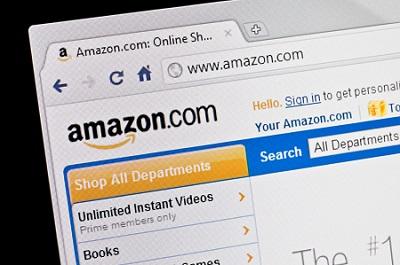Amazon's Profitable Q2: Is It Bigger Than Wal-Mart?
Amazon's second-quarter earnings showed a small but unexpected profit. Some say the company is now worth more than the world's biggest brick-and-mortar retailer.


Why Cloud Security Beats Your Data Center
Why Cloud Security Beats Your Data Center (Click image for larger view and slideshow.)
Amazon turned in another surprising quarter Thursday, producing a "significant" Q2 profit (in MSNBC's words) of $92 million after a $57 million loss in the first quarter. The result was a 17% surge in Amazon's afterhours share price to $566, from a close of $482 Thursday.
Friday trading prices headed back toward earth, settling down at $529 at the close of trading, but still retaining a jump of $47.24 in value over the previous day's close. That means Amazon is worth as much as Wal-Mart, or probably a little more.
In simplistic terms, Amazon has a market capitalization of $247 billion, while Wal-Mart's is $232 billion. Skeptics would point out that Wal-Mart recently bought back $7 billion in shares while borrowing heavily, so more of its value lies in the hands of its creditors than Amazon's does. Nevertheless, Amazon has nosed ahead by the market cap measure at the moment, while Wal-Mart still leads in total revenue.
With its second-quarter report, Amazon also moves into the top 10 US companies by market cap, displacing J.P. Morgan Chase & Co., according to the Wall Street Journal's Moneybeat.
[Want to learn more about Amazon's first quarter? See AWS Revenue Reveals Cloud Powerhouse.]
It's a poignant moment for the Internet economy. The premier online retailer is beating the premier brick-and-mortar big-box store. Wal-Mart may continue to edge out Amazon with revenues derived from mainstream and heartland consumers. But Amazon is building a retailing giant of a different stripe, one more likely to offer same-day deliveries in Seattle, San Francisco, Miami, and New York than to consumers in Topeka and Des Moines. Amazon has built a network of automated distribution centers, and it's rapidly changing shopping habits among computer- and smartphone-equipped consumers, capturing their business with features based on search convenience and ability to deliver quickly and cheaply.
Still, Wal-Mart is beefing up its online presence. Its CEO, Fernando Madeira, jabbed at Amazon's July 15 Prime Day sale with the comment that Amazon's practice of charging Prime customers $99 to access its sale "just doesn't add up for us." It countered by offering reduced prices on 2,000 items, and Amazon sniped that Wal-Mart was charging less online than it did in its stores.
Amazon's Q2 $92 million in profit would be something less than a triumph for most companies with $23.2 billion in revenue. But in Amazon's case, CEO Jeff Bezos has emphasized investing for the long view for so long that any black ink appearing on the ledger is greeted with surprise and applause.
Accustomed to losses, Wall Street analysts had predicted another one, a loss of 13 cents per share. In the second quarter a year ago, Amazon lost 27 cents per share. This year, it made 19 cents per share. "Holy cow. What a quarter. They blew that thing out of the water," the Motley Fool's analyst Jason Moser told the New York Times.
Figure 1: 
(Image: Tuomas Kujansuu/iStockphoto)
It's as if CEO Jeff Bezos has finally decided that Amazon's overall credibility as a business will be on a firmer footing if he slightly slows Amazon's pell-mell investment for expansion in favor of a display of profits. It's a minor course correction but one with big results, as the stock surge illustrates.
If Amazon remains a low-margin business, is it wise for investors to bank so much on future profits, if that's really what the stock surge means? "I have no idea. It's not rational," pointed out Forrester Research analyst Sucharita Mulpuru-Kodali in response to an InformationWeek email query.
So, what to make of headlines such as the Wall Street Journal's "Amazon Now Worth More Then Wal-Mart" or ABC News' "Amazon's Rise and How It Became Bigger Than Wal-Mart"?
Mulpuru-Kodali responded: "At this moment in time, I would say no. Valuation should be based on the net present value of a company's earnings, right? Amazon's earnings are about zero and will be into the foreseeable future. The net present value of zero is zero."
"But there are people that believe that Amazon is very innovative and will transform the world over time. Apple is worth more than Walmart and no one questions that. And there are people who think that Amazon is as good as Apple," she continued.
Indeed, part of the renewed faith in Amazon may have less to do with its retail innovations and more to do with the growing strength of its Amazon Web Services cloud unit. CFO Brian Olsavsky (replacing Tom Szkutak) during Thursday's earnings call, said AWS revenues grew at a pace of 81% over last year's Q2, yielding $1.82 billion. That's up from 49% growth in the second quarter.
Overall, Amazon's $23.2 billion in first-quarter revenues were $800 million more than forecast and would have been stronger but for the strength of the dollar versus other currencies. Second-quarter revenues
(Story continues on page 2)
registered as a 20% gain over the previous year. With no change in the dollar they would have represented a 27% gain.
The stock surge is powered by a broad band of investors who believe Amazon is reinventing retailing on its own innovative infrastructure, and will own an increasing share of retail sales around the world. Skeptics say it's investing in too many products, as well as retail systems, and no one can succeed on as many fronts as Amazon has chosen to pursue.
It's the old debate over Bezos' leadership. Does the company know what it's doing for the long haul, or is it over-investing in future profits that will never arrive? Judging by the stock price, current investors are sticking with Bezos and his team as they keep enlarging their pool of Prime buyers, their offerings of available goods and services, and their ability to execute quick deliveries.
Says Mulpuru-Kodali: "I don't see them ever being substantially more profitable than they are now, but its shareholders haven't seemed to care. In fact, Jeff Bezos is gunning to be a $200 billion [company] and has told people that he'd rather be big with small margins than small with big margins."
"Anyone who thinks there are Google-like margins in Amazon is kidding themselves, but so long as they keep kidding themselves, Amazon will absolutely sustain its valuation," she wrote.
About the Author
You May Also Like






